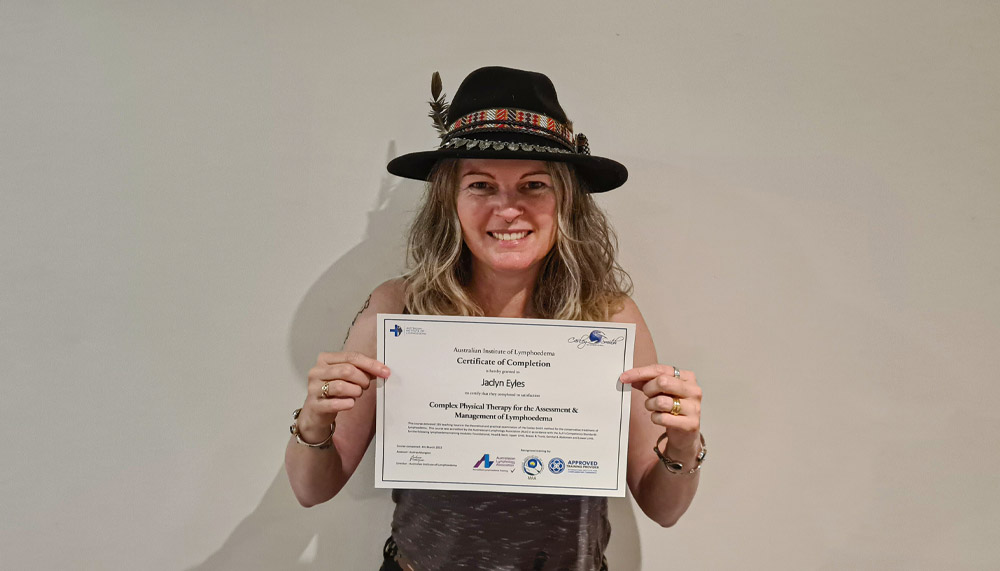A Rural Doctors Network scheme helps health practitioners upskill to better serve their communities.
Story Amanda Burdon
In the Snowy Mountains, patients with lymphatic conditions used to have to make a long and often hazardous trip on icy roads to Canberra for treatment. Now, thanks to the Health Workforce Scholarship Program (HWSP) administered by the NSW Rural Doctors Network (RDN), they can receive expert care locally from experienced nurse Jackie Eyles.
An initiative of the federal Department of Health, the HWSP has offered thousands of scholarships and bursaries to health practitioners, funding everything from short online courses to contributions to postgraduate studies, helping health practitioners upskill to meet community need. In NSW, in the past year alone, it has enabled 1,632 health practitioners to upgrade their skills.
Jackie, a registered nurse with 18 years’ experience, has been a beneficiary of the HWSP on several occasions. Her first bursary funded a trip to Adelaide to speak in front of 700 colleagues at the Australian Practice Nurse Association national conference. The second covered her attendance at a conference in Brisbane to share her experience of establishing a women’s sexual health clinic in a rural area.
“When I decided I wanted to become a lymphatic practitioner, because there are none in our area, I applied again,” Jackie says. “The financial support for training in Sydney, accommodation and travel expenses, meant that leaving my workplace, family and community didn’t have such a big impact. And now I can provide that care to my community, who don’t have to make the trip to Canberra on dangerous rural roads, especially in winter.”
Already, Jackie has 20 regular clients, coming from up to an hour away. “I am hopeful it has had an immediate and big impact on their lives,” she says. “People are often fatigued post chemotherapy and radiotherapy; some are not confident driving in the weather conditions and will often ignore important follow-up care as a result. Any community-based intervention that allows patients to remain healthy close to home is vital to their wellbeing.”
This story excerpt is from Issue #146
Outback Magazine: December/January 2023









